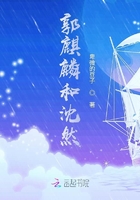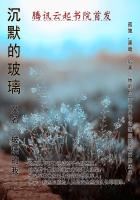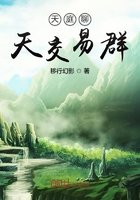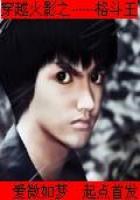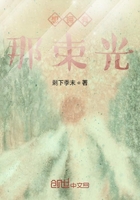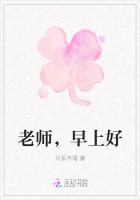“Although the number of children per woman has fallen from around 2.7 in the late 1970s to 1.55 today, much of that decline appears to be due to rapid socioeconomic development which has lowered the desire for children to the point that today large and growing numbers of couples, rural as well as urban, want only one,” commented Susan Greenhalgh, a professor with the University of California at Irvine, in her book Just One Child.
The alleged success of the birth control policy comes with additional, arguably disastrous if not unanticipated, demographic, social and political consequences. The policy contributes to a distorted age structure, with a growing proportion of elderly, a shrinking workforce, a high gender imbalance with males outnumbering females, female infanticide and selective abortion, as well as a future social safety net stigma. Together, these forces augur an aging and constrained nation within just one generation.
According to a report by the State Population and Family Planning Commission, there will be 30 million more men than women in 2020, potentially leading to an increase in an array of socially harmful phenomena, such as the kidnapping and trafficking of women, sexual crime and violence.
Many warn China may get old before it becomes rich enough to support its aging population. The rapid drop in birth rate, coupled with a rise in life expectancy, has led to an increasing proportion of elderly citizens. The percentage of those over the age of 60 accounted for 10 percent of the total population in 2000, a figure believed to constitute an aging society. The State Population and Family Planning Commission estimates the number of elderly citizens will reach 280 million by 2025, or about 18.4 percent of the total population, with projections of further rises taking the figure as high as 400 million in 2050, accounting for 30 per cent of the total population.
A key factor likely to further aggravate the situation is China’s shrinking labor force, which threatens to increase labor costs, slow or even reverse economic growth and increase immigration pressures. By 2020, the working population aged between 20 and 24 is expected to drop by as much as 50 percent, said demographic expert Wang Feng in an interview with Canadian newspaper The Star. Wang, a sociology professor with the University of California at Irvine, has studied China’s population policy for more than a decade. The UN forecasts that China’s working-age population, defined as those aged 15 to 59 years of age, will begin to decline after 2015.
With a social safety net yet to develop, adult children are expected to be the primary providers of support and care for their retired parents, as well as their own children. In what has come to be known as the “4:2:1 problem,” a term coined 30 years ago by Liang, the heavy financial and psychological burden makes these families vulnerable to all manner of accidents.
Many firmly believe the Chinese government must now begin to address these adverse consequences, or face serious new policy dilemmas.
Alternatives
As the country begins to reexamine the effects of its unprecedented population policy, decision makers and academics remain deeply divided on its future and possible alternatives. Some insist the current policy should not be loosened for fear of a population rebound. Others argued the opposite, insisting the current policy be terminated immediately.
Most local policy enforcers remain steadfast in their defense of the policy. During an interview in late September with rednet.cn, Li Wanchen, director of the Hunan Provincial Population and Family Planning Commission again emphasized the necessity of the 30-year family planning policy by declaring that thanks to the policy, Hunan Province alone has avoided an increase of 36 million people. He also reiterated that the family planning policy should not be loosened, and if a two children policy is adopted, the whole nation may face a population increase of 200 million, thus threatening the nation’s economic and social stability.
However, many population researchers favor a “two-child policy,” citing Yicheng as an example of a politically viable and effectively enforceable solution. As early as 2004, Gu Baochang, a professor with Renmin University of China, proposed a gradual transition to a “two-child” policy, arguing it would not result in runway population boom. “A two-child policy meets most people’s wishes,” he said.
Tian Xueyuan, widely regarded as one of the key architects of the one child policy, suggested in an article published last December in the People’s Daily that if one half of a couple is an only child, the couple should be allowed to have two children.
The authorities may be considering a “two-child” alternative of some sort. According to a recent AFP report, He Yafu, an expert who in Chinese demographic patterns said authorities plan to launch pilot projects in five provinces – Heilongjiang, Jilin and Liaoning in the northeast, Jiangsu and Zhejiang in the east – to let couples of whom one is an only child to have two children as of next year. “Over the next five years or so it will spread to the whole of China,” he told AFP. Official confirmation of the project has yet to be released.
The current controversial population policy was designed from the outset to be a temporary one generation policy. In September 1980, authorities vowed in the open letter issued by the Communist Party of China’s Central Committee to “adopt a different population policy 30 years hence, on condition that the current demographic problems have been significantly reduced.”
What authorities deemed pressing demographic problems at that time were primarily centered on an ever-increasing population; today the country is faced with a different set of demographic problems that center on a skewed population pyramid, revealing both an inverted age structure, and a dangerously imbalanced male to female ratio. Together, these problems combine to result in an imminent economic, political and societal crisis.
The situation has fundamentally changed, and now calls for no small amount of political courage and wisdom in order to overcome the great challenges ahead.
November 2010







